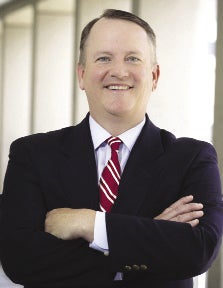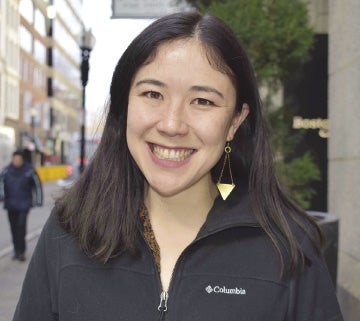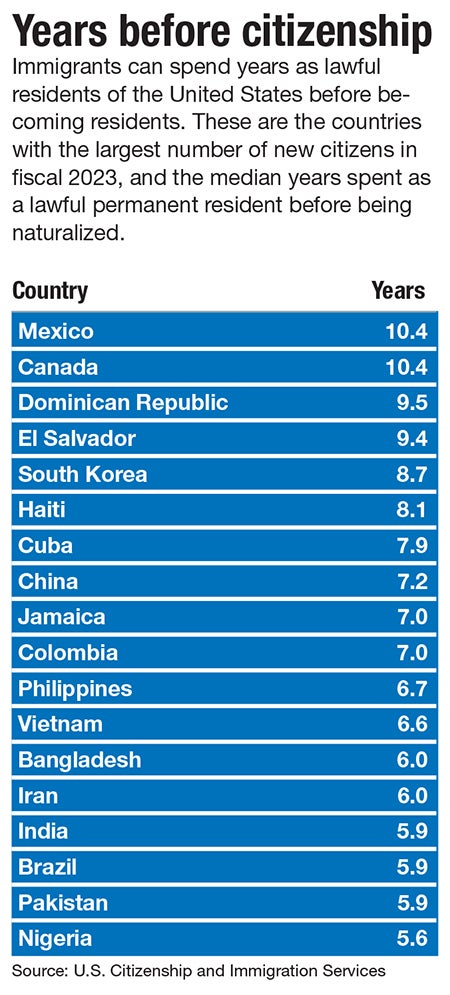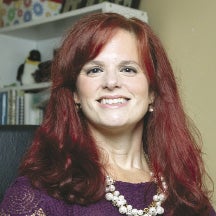The SDO plans to amend its citizen requirement to allow immigrants with a legal status to qualify.
Get Instant Access to This Article
Subscribe to Worcester Business Journal and get immediate access to all of our subscriber-only content and much more.
- Critical Central Massachusetts business news updated daily.
- Immediate access to all subscriber-only content on our website.
- Bi-weekly print or digital editions of our award-winning publication.
- Special bonus issues like the WBJ Book of Lists.
- Exclusive ticket prize draws for our in-person events.
Click here to purchase a paywall bypass link for this article.
Kelly Mittal founded myKidzDay in 2012 after her first daughter was born.
Once she dropped her crying, months-old baby off at daycare in the morning, Mittal had no clue how her daughter’s day was going until she picked her up, and only after Mittal spent the day stewing over questions of when she had stopped crying or if she had a nap.
So, Mittal, who immigrated to the U.S. from India in 1999 and is now an American citizen, developed the Westborough-based childcare app for daycares, designed for parent communication, attendance tracking, and center management. Now, myKidzDay has more than 40,000 users in the U.S. and Canada.
“I really had to literally wait till the end of the day just to find answers to those simple questions. And I was like, you know, imagine if someone had sent me a picture of her smiling, that would have made my day,” said Mittal, who is now the company’s CEO.
Mittal wanted to take her business to the next level and sought to have myKidzDay certified as a diverse business through the Massachusetts Supplier Diversity Office. Companies owned by people who are a racial minority, woman, veteran, service-disabled veteran, have a disability, or member of the LGBT community can receive this certification. Obtaining a diversity certification adds credibility to a business’ brand while enhancing its opportunity for new revenue streams from firms receiving government funding, which have a portion of their spending benchmarked for utilizing SDO-certified businesses.
As Mittal found, the process of obtaining SDO certification is very cumbersome, and it is currently impossible for businesses owned by immigrants who are not naturalized citizens or permanent U.S. residents.

“Not being able to go through a process like this or have that certification, in some instances, can be an impediment for them to grow the business further. So we don't want to impede growth, we want to encourage it, and I think they could do that with a reasonable amendment,” said Timothy Murray, president and CEO of the Worcester Regional Chamber of Commerce.
Those difficulties in achieving SDO certification may soon become a thing of the past, or at least become easier. As part of the effort to make diversity certifications more accessible to immigrant-owned businesses, the SDO plans to amend its citizen requirement to allow immigrants with a legal status to qualify.
“One of the SDO’s primary missions is to identify and remove barriers for diverse and small businesses trying to participate in the state’s bidding process. We see the requirements for citizenship as one of those obstacles,” Bill McAvoy, executive director at the SDO, wrote in an email to WBJ.
Removing barriers
A strong proponent of removing citizenship requirement is the Asian Business Empowerment Council, a Boston-based statewide not-for-profit. In June, ABEC released a report showing Asian-owned businesses, particularly those operated by immigrants, were struggling more than the typical business. One of its proposed solutions is the removal of the mandatory citizenship requirement for SDO certification.
The suggestion came from a comment a business owner made in a focus group, said Anne Kiyono Calef, lead author of the report. The owner said though they had been in the U.S. for more than 12 years and paying taxes for more than 10, they still didn’t have a permanent residency card – better known as a green card – because of long wait times, and couldn’t apply for SDO certification.

Because the U.S. has a 7% per-country caps on green cards, those who have emigrated from countries with high numbers of green card applicants, such as China, India, and Mexico, have prolonged wait times, said Kiyono Calef.
The SDO’s push to remove the diversity certification citizenship requirement was prompted by a similar comment McAvoy's office received from an electrician business in 2023. The business was properly licensed, paying taxes, and employed several staff, but because of the citizenship requirements, the business was not eligible for certification.
“This led to a longer conversation on how to serve these businesses that meet all other requirements to do business in the commonwealth but are held back by the citizenship [rule],” McAvoy said.
SDO certifications not only open up revenue streams for qualifying businesses, but they help non-certified businesses meet requirements for public projects. For example, the City of Worcester requires public development projects or private developments receiving a tax break to have a percentage of subcontractors be SDO-certified businesses.

When multiple projects are going on at the same time, meeting these requirements is difficult, as the number of SDO-certified subcontractors is limited. The contractor behind the Polar Park baseball stadium had to pay a $2-million fine to the city and state governments for failing to meet these requirements and filing misleading reports.
Onerous process to certification
When Mittal first looked into SDO certification, she ran into technical issues since her business’ corporation is currently registered in Florida. Secondly, she’s still trying to figure out in concrete terms in which ways obtaining the certification would support her business.
Mittal, who is the chair of the Professional and Entrepreneurial Network at the India Society of Worcester, based in Shrewsbury, had attended the SDO’s mandatory two-hour pre-certification workshop and the certification workshop ISW PEN hosted with representatives from the SDO and U.S. Small Business Administration. Still, Mittal does not have clear answers to her questions.
Accessing information was another major obstacle for Lilian Chukwurah, attorney and owner of Lilly Legal, an immigration law firm in Worcester who emigrated in 2002 from Nigeria.

“It was hard to get the information, knowing where to go. What you're supposed to do was not readily available. I tell people all the time, I'm a lawyer and some of this stuff is still not intuitive at all,” said Chukwurah.
She did her own research to obtain accurate information for moving through the application process as she wasn’t aware of a contact within the SDO to help point her in the right direction.
Though Chukwurah has started the application process again as Worcester has made information about the diversity certification process available through its Diverse Business Certification Grant Program, she had originally discontinued her pursuit.
“It just felt like it wasn't really geared towards me, even though it's supposed to be. Because as a minority-owned business, if I am having such a hard time finding the information that's supposedly meant for me, sometimes I just don't want to participate,” she said.
Julia Becker Collins, chief operating officer of Northborough marketing agency Vision Advertising, dealt with the lack of readily available support early on in her application process as a woman-owned business.
Navigating the levels of bureaucracy within the application process proved taxing as Becker Collins struggled to make contact with someone at the SDO to offer support.

“A lot of systems that need to interact with each other, they don't always play nice together. You can't always get the answer you're looking for. You're dealing with automated systems. You can’t always get a person on the phone,” she said.
Though she hadn’t kept a running figure of how many hours she logged when working her way through the application, from finding documentation from 20 years prior, to holding out on wait times, to figuring out how to submit documents properly, Becker Collins estimated she spent hundreds of hours on her certification, a feat simply not accessible for all small business owners and employees.
“We're a small, small company. So if somebody's going to have to spend, you know, five hours a week, 10 hours a week, or whatever it is, who is that going to be? It's going to be me,” she said.
Boosting businesses
Amending the citizenship requirement would bolster the success of small businesses, said Murray from the Worcester chamber.
It takes years to go through the permanent residency/citizenship processes, and in the meantime, people have already started growing their businesses. Those efforts shouldn’t be stunted by onerous requirements, Murray said.
In response to possible naysayers who believe businesses shouldn’t benefit from state-run programs if its owner isn’t a citizen, Chukwurah said those businesses are not trying to cheat the system.
These businesses are paying taxes. They’re paying rent. If they’re retail, they’re paying sales taxes, she said.
“They are not just trying to get money from the city government or the state government. They are trying to run a business that, at the end of the day, that's what it comes down to. They are running a business that provides a benefit to the city, that provides a benefit to the state. They are not looking for a handout,” said Chukwurah.
Affording qualifying enterprises access to more funds and opportunities serves to support the communities those businesses are working for, Mittal said.
“When a person is starting a business, they are creating something new. They're not just doing it for themselves. They are looking at the good of the society as a whole. They are contributing to the economy,” Mittal said. “You're creating employment. You're creating solutions for the society as a whole.”
Mica Kanner-Mascolo is a staff writer at Worcester Business Journal, who primarily covers the healthcare and diversity, equity, and inclusion industries.

